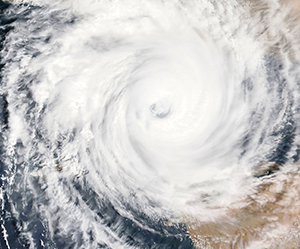Observation
National Academies Report Calls for Increased Behavioral Research Within the Weather Enterprise

The hurricanes that pounded Texas, Florida, Puerto Rico, and other sites over the summer of 2017 have caused terrible loss of life and tremendous damage. Scientists recognize that hurricanes and other significant weather events—in addition to meteorology and weather forecasting more generally—have obvious connections to the earth sciences. But a new report from the National Academies of Sciences, Engineering, and Medicine (NASEM) concludes that many behavioral and social science factors are also at play in the weather enterprise—and that psychological scientists have an important responsibility to participate in weather research.
“There is a growing recognition that a host of social and behavioral factors determine how we prepare for, observe, predict, respond to, and are impacted by weather hazards,” the report highlights.
This NASEM report, released in November 2017, summarizes a 15-month investigation headed by a committee including APS Fellow David V. Budescu, along with oversight from the National Academies’ Board on Human-Systems Integration, Board on Atmospheric Sciences and Climate, and Board on Environmental Change and Society.
Among many findings, the report observes that participation from social and behavioral scientists in the weather enterprise is crucial for advancing knowledge.
“While efforts to advance meteorological research and numerical weather prediction must continue, realizing the greatest return on investment from such efforts requires fully engaging the social and behavioral sciences—both to expand the frontiers of knowledge within [social and behavioral science] disciplines, and to foster more extensive application of these sciences across the weather enterprise,” the report reads.
The report recommends that weather enterprise leaders should bring behavioral science expertise into their leadership teams, advance research at the behavioral science-weather interface, and advance research on system-focused research, risk assessments and responses, and the delivery and design of messages related to weather. In particular, the report calls on the US National Oceanic and Atmospheric Administration, the National Science Foundation, the Federal Highway Administration, and the Federal Emergency Management Agency to expand their behavioral science research portfolios.
To learn more about NASEM’s conclusions, read the full report, or the Report in Brief.




